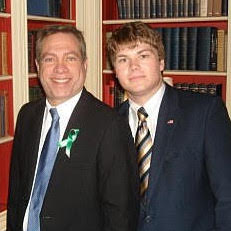
Kessler’s “Finding Meaning” Follows Loss of Son
David Kessler has spent thousands of hours with people all over the world studying, witnessing, teaching, and writing about grief, and he is the co-author of On Grief and Grieving with Elisabeth Kubler Ross, whose On Death and Dying has been studied and critiqued perhaps more than any other book ever written about grief (please see the accompanying article).
His own expertise was challenged by the sudden death of his son by an accidental overdose in 2017, which led him on a soul-searching quest and ultimately to writing
Finding Meaning – the Sixth Stage of Grief. In his new book David steps into the aftermath of loss from a very personal level, and combines the information and strategies he has relied upon in his professional life to help cope and make sense of the death of his son. While he is clear his work “is not about his son’s death,” he acknowledges that it “deepened his work.” He describes grief as an exploration that results in a “new different normal” that is accompanied by finding meaning.
The book is a gift not only to his son David Kessler, Jr., but also to all who have lost a loved one to the disease of addiction (or any other means) because it is an affirmation and a poignant reminder that, “You heal when you can remember those who have died with more love than pain, when you find a way to create meaning in your life in a way that honors theirs.”
Below is an excerpt from Finding Meaning, which David graciously allowed us to reprint in VOICES.
As I considered the factors that could help me heal, I remembered the three P's, the mental attributes that according to renowned psychologist Martin Seligman are what shape our views of the world and determine how well we will be able to deal with setbacks:
1) Personalization -- whether you attribute an event to internal or external causes, that is, whether you blame yourself for it, or feel like the only one who has ever suffered such a tragic loss.
2) Pervasiveness -- the belief that a negative event will destroy everything in your life.
3) Permanence -- to believe that the effects of a loss or a disaster will last forever.
When I thought about how I was going to apply the three P’s to the loss of my son, I knew I would have to acknowledge, in terms of personalization, that though this loss had happened to me, it was not because of me. And I was not unique in my suffering, either; had not been singled out by God or fate or whatever to undergo this ordeal. I had spent enough time with the brave parents and other survivors of loss I had met in my lectures and retreats to know not to personalize my loss. Many others had experienced something like it, and I had counseled them not to blame themselves. Thinking about this helped me feel less alone in the world and in my loss.
Thinking about this second key, pervasiveness, I knew that my life would not be destroyed by David's death. Nor would my work. Because of the tragedy, my work would if anything become deeper, and perhaps I would grow in wisdom. My heart grew lighter at the thought that David could somehow help me help others. The helper in him could live on in me.
As for the last P, permanence: I knew that there would be a permanent hole in my heart, but I also knew that the pain would not last forever. I would change, transform, and become different in ways I could not yet imagine.
As David notes in the final chapter “Everything Has Changed Forever.” This is something to ponder as we grapple with -- and attempt to make sense of -- our own losses. If there is such a thing as a roadmap through grief, you could say that finding meaning is the final destination.
People often think there is no way to heal from severe loss. I believe that is not true. You heal when you can remember those who have died with more love than pain, when you find a way to create meaning in your own life in a way that will honor theirs. It requires a decision and a desire to do this, but finding meaning is not extraordinary, it's ordinary. It happens all the time all over the world.
David Kessler is the founder of grief.com and author of Finding Meaning.
